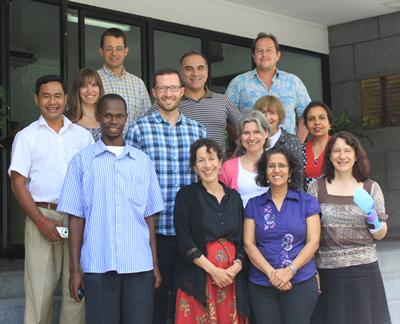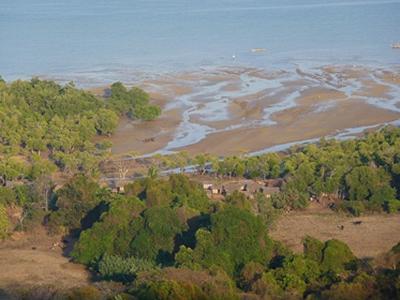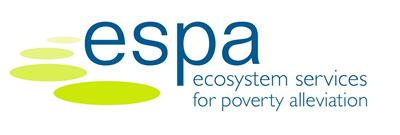SSS UN Day Blog- Dr Kate Schreckenberg

This is the latest blog in our series of speaker and project bios for the Sustainability Science at Southampton UN World Development Information Day Seminar (24 October, 2012)
Blog Speaker profile- SSS UN World Development & Information Day
Dr Kate Schreckenberg
Project title: Safeguarding local equity as global values of ecosystem services rise
1. Tell us a bit about you and your project team:
The ESPA Equity project brings together collaborators from universities, policy research organisations and civil society. Our theoretical understanding of the different dimensions of equity is ground-truthed by the day-to-day experience of our southern partners, linked through the REDD-net network, who are at the forefront of responding to questions posed by governments and communities alike.
2. Tell us a bit about your project:
As pressure on tropical forest ecosystems increases, new ways of management are needed to ensure that both local needs (for timber, fuelwood, agricultural land) and global needs (for forests as a biodiversity habitat, water and soil conservation and carbon sequestration) are met. Payments for Ecosystem Services (PES) are a way of transferring funds to developing country societies to contribute to the costs of managing their resources in a more sustainable manner. They include initiatives to Reduce Emissions from Deforestation and Forest Degradation (REDD+) which have a specific focus on reducing climate change. While well-intentioned, without a clear consideration of potential equity outcomes there is a real risk that such initiatives may disproportionately benefit well-off members of communities as their land, education and capital resources enable them to engage more readily in new activities (such as tree-planting) and to give up forest-degrading activities (such as forest clearance for agriculture or small-scale logging). Our project has developed a framework for assessing the equity impacts of these initiatives, providing a common terminology for governments, NGOs and communities to negotiate more equitable outcomes for all concerned.
3. Describe the impact of your project in terms of providing solutions to global development challenges:
Our framework for assessing equity should contribute to achieving the critical challenge of the equitable management of ecosystems in a manner that benefits poor people. In particular, it will help decision-makers in REDD+ and PES programmes minimise negative impacts on equity and maximise positive impacts on poverty alleviation.
Further Information:
- Project website: http://redd-net.org/themes/equity
- SSS UN Day Seminar & Live Stream: SSS MultiMedia Page


